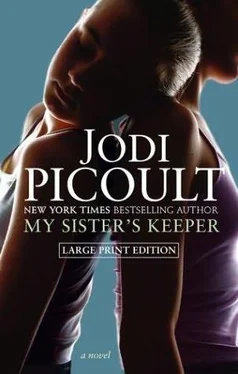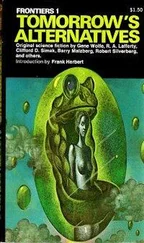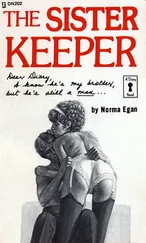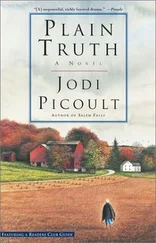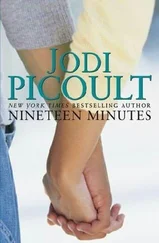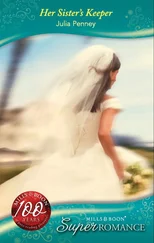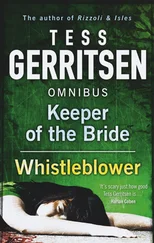Brian presses her into an explanation. "A couple of months ago, the chain fell off my bike right in front of the hockey rink. A bunch of guys were practicing, but their goalie had mono, and the coach said he'd pay me five bucks to stand in net and block shots. I borrowed the sick kid's equipment, and the thing is… I wasn't that bad at it. I liked it. So I kept coming back." Anna smiles shyly. "The coach asked me to join the team for real, before the tournament. I'm the first girl on it, ever. But I have to have my own equipment."
"Which costs $614?"
"And ninety-six cents. That's just the leg pads, though. I still need a chest protector and catcher and a glove and a mask." She stares at us expectantly.
"We have to talk about it," I tell her.
Anna mutters something that sounds like Figures , and walks out of the room.
"Did you know she was playing hockey?" Brian asks me, and I shake my head. I wonder what else my daughter has been hiding from us.
We are about to leave the house to watch Anna playing hockey for the first time when Kate announces she isn't going. "Please Mom," she begs. "Not when I look like this."
She has an angry red rash all over her cheeks, palms, soles, and chest, and a moon face, courtesy of the steroids she takes to treat it. Her skin is rough and thickened.
These are the calling cards of graft-versus-host disease, which Kate developed after her bone marrow transplant. For the past four years, it's come and gone, flaring up when we least expect it. Bone marrow is an organ, and like a heart or a liver, a body can reject it. But sometimes, instead, the transplanted marrow begins to reject the body it's been put in.
The good news is that if that happens, all the cancer cells are under siege, too—something Dr. Chance calls graft-versus-leukemia disease. The bad news is the symptomology: the chronic diarrhea, the jaundice, the loss of range of motion in her joints. The scarring and sclerosis wherever there's connective tissue. I am so accustomed to this that it doesn't phase me, but when the graft-versus-host disease flares up this badly, I let Kate stay home from school. She is thirteen, and appearance is paramount. I respect her vanity, because there is so little of it.
But I cannot leave her alone in the house, and we have promised Anna we'll come watch her play. "This is really important to your sister."
In response, Kate flops onto the couch and pulls a throw pillow over her face.
Without saying another word I walk to the hall closet and pull a variety of items from drawers. I hand the gloves to Kate, then jam the hat on her head and wind the scarf around her nose and mouth so that only her eyes are visible. "It'll be cold in the rink," I say, in a voice that leaves no room for anything but acceptance.
I barely recognize Anna, stuffed and trussed and tied into equipment that, eventually, we wound up borrowing from the coach's nephew. You cannot tell, for example, that she is the only girl on the ice. You cannot tell that she is two years younger than every other player out there.
I wonder if Anna can hear the cheering through her helmet, or if she's so focused on what's coming toward her that she blocks it all out, concentrating instead on the scrape of the puck and the smack of the sticks.
Jesse and Brian sit on the edge of their seats; even Kate—so reluctant to come—is getting into the game. The opposing goalie, compared to Anna, moves in slow motion. The action switches like a current, the play moving from the far goal toward Anna's. The center passes to the right wing, who skates for broke, his blades slicing through the roar of the cheering crowd. Anna steps forward, sure of where the puck is going a moment before it arrives, her knees bent in, her elbows pointed out.
"Unbelievable," Brian says to me after the second period. "She's got natural talent as a goalie."
That much, I could have told him. Anna saves, every time.
That night Kate wakes up with blood streaming out of her nose, her rectum, and the sockets of her eyes. I have never seen so much blood, and even as I try to stanch the flow I wonder how much of it she can stand to lose. By the time we reach the hospital, she is disoriented and agitated, finally slipping into unconsciousness. The staff pump her full of plasma, blood, and platelets to replace the lost blood, which seems to leak out of her just as quickly. They give her IV fluids to prevent hypovolemic shock, and intubate her. They take CT scans of her brain and her lungs to see how far the bleeding has spread.
In spite of all the times we have run to the ER in the middle of the night, all the times Kate's relapsed with sudden symptoms, Brian and I know it has never been quite this bad. A nosebleed is one thing; system failure is another. Twice now, she's had cardiac arrhythmias. The hemorrhaging keeps her brain, heart, liver, lungs, and kidneys from receiving the flow they need to work.
Dr. Chance takes us into the little lounge at the end of the pediatric ICU floor. It is painted with smiley-face daisies. On one wall is a growth chart, a four-foot-tall inchworm: How Big Can I Grow?
Brian and I sit very still, as if we will be rewarded for good behavior. "Arsenic?" Brian repeats. "Poison?"
"It's a very new therapy," Dr. Chance explains. "You get it intravenously, for twenty-five to sixty days. To date, we haven't effected a cure with it. That's not to say it might not happen in the future, but at the moment, we don't even have five-year survival curves—that's how new the drug is. As it is, Kate's exhausted cord blood, allogeneic transplant, radiation, chemo, and ATRA. She's lived ten years past what any of us would have expected."
I find myself nodding already. "Do it," I say, and Brian looks down at his boots.
"We can try it. But in all likelihood, the hemorrhaging will still beat out the arsenic," Dr. Chance tells us.
I stare at the growth chart on the wall. Did I tell Kate I loved her before I put her to bed last night? I cannot remember. I cannot remember at all.
Shortly after two A.M., I lose Brian. He slips out when I am falling asleep beside Kate's bed and doesn't come back for over an hour. I ask for him at the nurse's desk; I search the cafeteria and the men's room, all empty. Finally I locate him at the end of the hallway, in a tiny atrium that was named in some poor dead child's honor, a room of light and air and plastic plants that a neutropenic patient could enjoy. He sits on an ugly brown corduroy couch, writing furiously with a blue crayon on a piece of scrap paper.
"Hey," I say quietly, remembering how the kids would color together on the floor of the kitchen, crayons spilled like wildflowers between them. "Trade you a yellow for your blue." Brian glances up, startled. "Is—"
"Kate's fine. Well, she's the same." Steph, the nurse, has already given her the first induction of arsenic. She has also given her two blood transfusions, to make up for what she's losing. "Maybe we should bring Kate home," Brian says. "Well, of course we—"
"I mean now." He steeples his hands. "I think she'd want to die in her own bed."
That word, between us, explodes like a grenade. "She isn't going to—"
"Yes, she is." He looks at me, his face carved by pain. "She is dying, Sara. She will die, either tonight or tomorrow or maybe a year from now if we're really lucky. You heard what Dr. Chance said. Arsenic's not a cure. It just postpones what's coming."
My eyes fill up with tears. "But I love her," I say, because that is reason enough.
"So do I. Too much to keep doing this." The paper he has been scribbling on falls out of his hands and lands at my feet; before he can reach it I pick it up. It is full of tearstains, of cross-outs. She loved the way it smelled in Spring, I read. She could beat anyone at gin rummy. She could dance even if there wasn't music playing. There are notes on the side, too: Favorite color: pink. Favorite time of day: twilight. Used to read Where the Wild Things Are, over and over, and still knows it by heart.
Читать дальше
